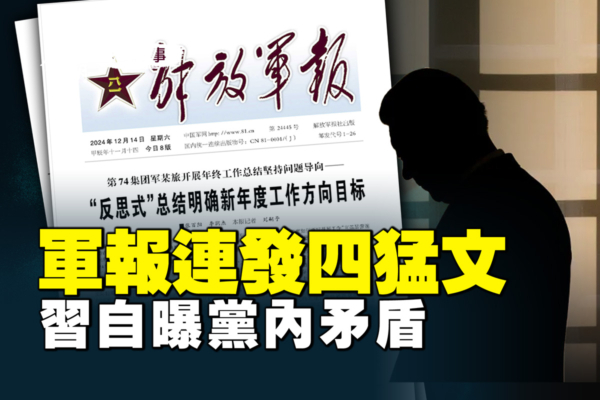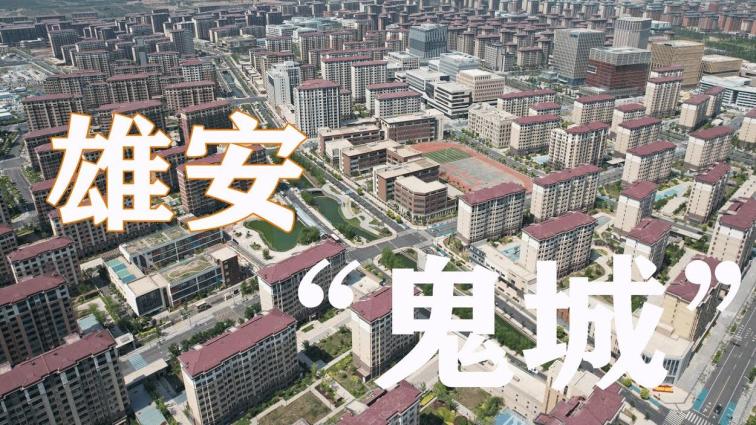Li Qiang released the flood, submerging Xi Jinping's elite troops. (Illustration by People News)
[People News] In Beidaihe, where senior officials from Zhongnanhai have gathered, it is reported that the members of the leadership team for the 21st National Congress will soon be finalised. Sources indicate that current Vice Premier Zhang Guoqing is set to become a member of the Standing Committee of the Political Bureau of the 21st National Congress and will take on the role of Chairman of the National People's Congress, positioning him as the third successor.
On August 8, Du Wen, the Executive Director of the Legal Advisory Office of the former Inner Mongolia Autonomous Region government, revealed in his program "Internal Perspective on China" that he received information stating that during the Beidaihe meeting, current Premier Li Qiang expressed that he has no intention of seeking re-election as Premier, nor does he plan to transition to the National People's Congress to serve as Chairman. Consequently, Zhang Guoqing was unexpectedly nominated as the third successor.
Publicly available information shows that Zhang Guoqing was born in 1964 and hails from Henan. He has worked at China North Industries Group Corporation for 12 years since 1987, and by the late 1990s, he had advanced to the positions of Party Secretary and Vice President of the company. China North Industries Group Corporation is a state-owned military industrial enterprise at the ministerial level.
In 1999, Zhang Guoqing (张国清) joined the China North Industries Group Corporation, where he worked for 14 years. Reports indicate that he became the deputy general manager of the China North Industries Group Corporation and president of China North Industries Company at the age of 40, and by 43, he was appointed as the secretary of the Party Committee of the China North Industries Group Corporation. In April 2013, Zhang Guoqing was appointed deputy secretary of the Chongqing Municipal Committee. On December 30, 2016, he was named vice mayor of Chongqing and acting mayor. In January 2017, he officially became the mayor of Chongqing. In early 2018, Zhang Guoqing served as the acting mayor of Tianjin before being formally appointed as mayor. In 2020, he took on the role of secretary of the Liaoning Provincial Committee, becoming the youngest provincial secretary at that time. On October 23, 2022, at the age of 58, Zhang Guoqing was elected as a member of the Political Bureau of the Communist Party of China Central Committee during the 20th National Congress, achieving a vice national level position and becoming a leader of the Party and the country.
Zhang Guoqing's career path suggests that he is a technocrat with minimal factional ties, possessing valuable experience in managing and operating state-owned enterprises.
What has led to Zhang Guoqing's favour with Xi Jinping (习近平)?
Du Wen revealed that around the time of Sun Zhengcai's (孙政才) downfall in 2017, it was rumored that Zhang Guoqing provided Xi Jinping with numerous key reports regarding Sun Zhengcai and was involved in the denunciation of him. Some of Sun Zhengcai's comments made in very private settings were leaked as a result. Following Sun Zhengcai's removal, Zhang Guoqing was swiftly promoted to mayor of Chongqing.
Du Wen noted that this experience illustrates Zhang Guoqing's alignment with the central leadership and Xi Jinping during a significant political upheaval, which is a key reason for the trust he has garnered from Xi Jinping.
Second, Zhang Guoqin (Zhāng Guóqīn) enjoys a significant age advantage. Despite his white hair, he is only 61 years old this year, making him one of the youngest members of the current Central Politburo. By the time of the next leadership transition in 2027, he will be just 63, allowing him the possibility to serve another term based on his age.
Third, since Xi Jinping (Xí Jìnpíng) assumed power, he has actively promoted the integration of military and civilian sectors as well as the modernisation of the national defence industry, and Zhang Guoqin clearly aligns with the demands of this era. Reports suggest that Xi Jinping favours this official, who has expertise in economic management, a background in central enterprises, and experience in local governance. His rapid political ascent is likely a result of Xi Jinping nurturing him as a 'dark horse.'
Du Wen (Dù Wén) argues that while Zhang Guoqin is not a close ally of Xi Jinping from his tenure in Fujian and Zhejiang, his quick rise can undoubtedly be credited to Xi Jinping's endorsement and trust. Observers often classify him as a representative of the military-industrial faction within Xi's inner circle.
Since Xi Jinping took office, a significant number of technical bureaucrats from the aerospace, weapons, and other national defence, technology, and industrial sectors have been promoted to high-level positions. Du Wen analyses that these technical bureaucrats lack ties to other factions and are viewed as clean slates. Once these individuals align with Xi Jinping's interests, they are likely to become very loyal and dependable.
Commentators have noted that individuals like Zhang Guoqin, who lack other political support and rely solely on Xi Jinping's backing, are highly consistent with Xi's policy positions.
Since the start of this year, certain developments have been interpreted as Xi Jinping's intention to elevate Zhang Guoqin's status.
According to a report by Xinhua News Agency on February 11 this year, President Xi Jinping's special representative, member of the Political Bureau of the Central Committee of the Communist Party of China, and Vice Premier Zhang Guoqing attended the Artificial Intelligence Action Summit in Paris, where he delivered a speech. It was also reported that during his visit to France, French President Emmanuel Macron met with Zhang Guoqing.
Analyst Du Wen noted that Ding Xuexiang, the top Vice Premier responsible for technology, was expected to represent China at the AI summit, but was instead replaced by Zhang Guoqing. At the time, some commentators suggested that this move was Xi Jinping's way of sending a signal to Ding Xuexiang, who is viewed as a leading candidate for succession, while simultaneously allowing Zhang Guoqing to make his debut on the international stage, showcasing Xi's trust in this confidant with a military background. These indications suggest a close relationship between Zhang Guoqing and Xi Jinping.
Du Wen further emphasised that the primary reason Xi Jinping chose Zhang Guoqing is that he is someone Xi trusts deeply and can easily influence as a political newcomer. Du Wen also mentioned that such rumours remain unverified and that it may take until 2027 to fully uncover the underlying dynamics. Currently, the prevailing sentiment reflects external perceptions and some circulating rumours, indicating that Zhang Guoqing's political prospects are viewed more favorably, and he has been considered in future succession discussions.
Independent commentator Du Zheng published an article on August 7 in Taiwan's 'Shang Bao', stating that a friend close to high-ranking officials in Beijing disclosed to him that Xi Jinping is negotiating with the opposition, suggesting that if he were to step down as General Secretary, he would still retain the title of the de facto highest leader, similar to Deng Xiaoping in the past.
Du Zhengye emphasised that the Fourth Plenary Session in October is critical, and it is important to pay attention to the potential for unexpected "new and old transitions" and situations where individuals can both rise and fall. This could provide insights into whether the leadership transition of the Communist Party of China in 2027 will go smoothly.
He also indicated that Xi Jinping might abruptly, unexpectedly, and at an inopportune time, conclude his tenure in power in China.
As a result, it is likely that the so-called 21st leadership team that Xi Jinping has put together may cease to exist. △











News magazine bootstrap themes!
I like this themes, fast loading and look profesional
Thank you Carlos!
You're welcome!
Please support me with give positive rating!
Yes Sure!